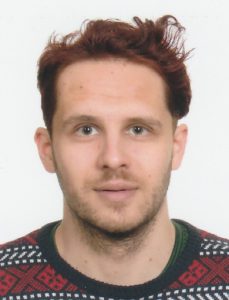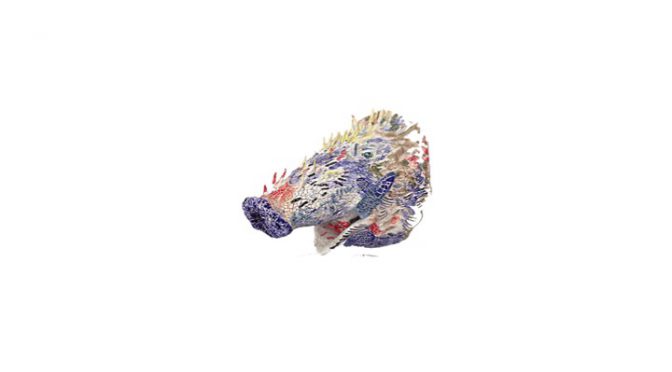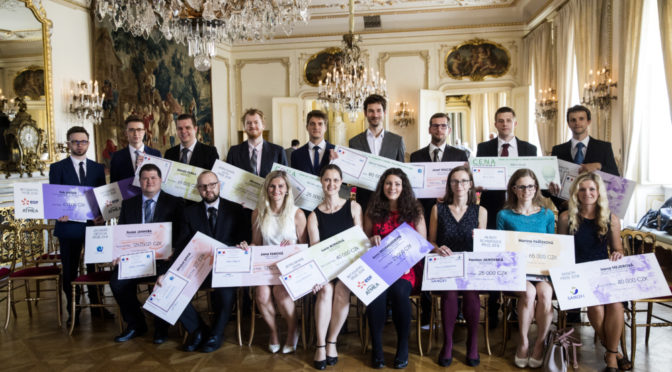Contact: mihai-dan.cirjan@cefres.cz
is a PhD student at the Central European University in Budapest under the supervision of Balázs Trencsényi. His PhD dissertation in comparative history on Indebtedness and Credit Relations in Times of Crisis: Reinventing the State by Governing Economic Life in Post-liberal Romania (1929-1944) contributes to CEFRES research area 1.
Contact: adela.klinerova@cefres.cz
is a PhD student in cotutelle between the Charles University (Prague) and the École Pratique des Hautes Études (Paris), under the supervision of Richard Biegel and Sabine Frommel. Her dissertation is entitled Modern French Architecture in the Context of Czech and East-Central European Nineteenth-Century Architecture, contributes to CEFRES research area 1.
Contact: julien.wacquez@cefres.cz
is a PhD student at the EHESS (Paris) under the supervision of Jean-Louis Fabiani. His dissertation in sociology is entitled The Grammar of Likelihood: The Attachement to Reality of Sci-Fi Practitioners, and contributes to CEFRES research area 1.
Associated PhD students 2016-2017
Contact: magdalena.cabaj@cefres.cz
is a PhD student in cotutelle between the University of Warsaw and the École normale supérieure in Paris under the supervision of Wincenty Cesluk-Grajewski and Dominique Lestel. Her PhD dissertation on Hermaphrodite Writing is at the crossroads between philosophy and literature, and contributes to CEFRES research area 2.
Contact: matyas.erdelyi@cefres.cz
is a fifth-year PhD student at the Central European University in Budapest under the supervision of Karl Hall and Susan Zimmermann. His dissertation is entitled The Making of a Productivist Middle Class in the Habsburg Monarchy, is at the crossroad between history and sociology, and contributes to CEFRES research area 1.
Contact: anna.gnot@cefres.cz
is a PhD student at the Faculty of Philology, University of Opole under the supervision of Joanna Czaplińska. Her dissertation in literary studies is entitled Ninth Autobiography – Dimensions of Autobiographical Space in Literary Work of Ota Filip and contributes to CEFRES research area 2.
Contact: filip.herza@cefres.cz
is a PhD student at Faculty of Humanities of Charles University under the supervision of Lucie Storchová. His dissertation is entitled Imaginations of Bodily “Otherness” and Prague’s Freak Show Culture 1860-1939, is at the crossroad between cultural anthropology and history, and contributes to CEFRES research area 2.
Contact: mathieu.lericq@cefres.cz
is a PhD student at Aix-Marseille University (LESA) under the supervision of Thierry Roche. His dissertation in cinematography studies is entitled Troubling Intimacies in Communist Poland Films (1968-1989): the Birth of a Bio-Cinema?, and contributes to CEFRES research area 2.
Contact: yuliya.moskvina@cefres.cz
is a PhD student at Charles University (Prague) under the supervision of Paul Blokker. Her dissertation in sociology is entitled Squat, State, Society, and contributes to CEFRES research area 2.
Contact: martin.pjecha@cefres.cz
is a PhD student at the Central European University (Budapest) under the supervision of Matthias Riedl. His dissertation is entitled Discourses of Violence within the Hussite Movement, and contributes to CEFRES research area 2.
Contact: lucie.trlifajova@cefres.cz
is a PhD student at Faculty of Social Science of Charles University. Her dissertation is entitled The Role of Social Protection in the Context of Rising Labour Market Precarity is at the crossroad between anthropology and public policy and contributes to CEFRES research area 2.
Contact: florence.vychytil-baudoux@cefres.cz
is a PhD student at the EHESS (Paris) under the supervision of Nancy L. Green. Her dissertation in history is entitled Between Citizenship, Ethnicity and the Politics of Exile: The Logics of Polonia‘s Political Integration in France, the United States and Canada, 1945-1980 and contributes to CEFRES research area 1.
 My Ph.D. project explores ways in which food motifs intervene in the broad problem of searching for or attempts to construct a personal identity of female characters (and narrators) in contemporary Czech prose. Continue reading Olga Słowik: Research & CV
My Ph.D. project explores ways in which food motifs intervene in the broad problem of searching for or attempts to construct a personal identity of female characters (and narrators) in contemporary Czech prose. Continue reading Olga Słowik: Research & CV 





